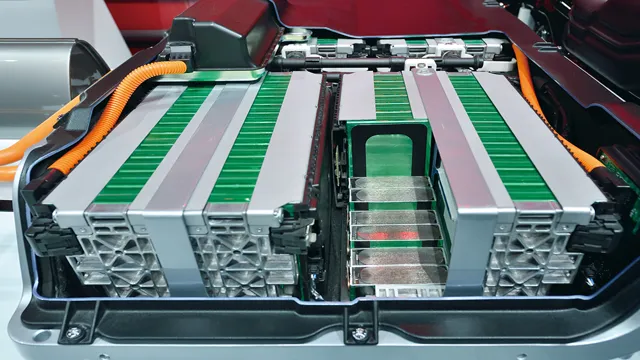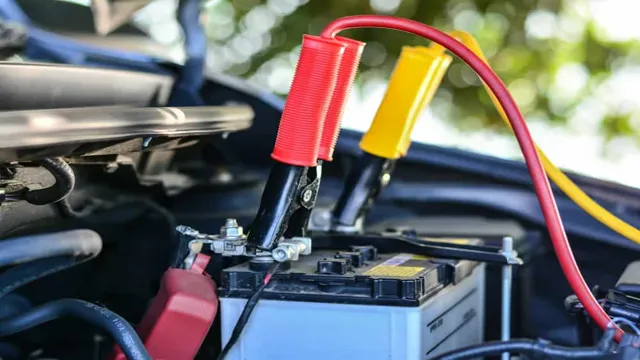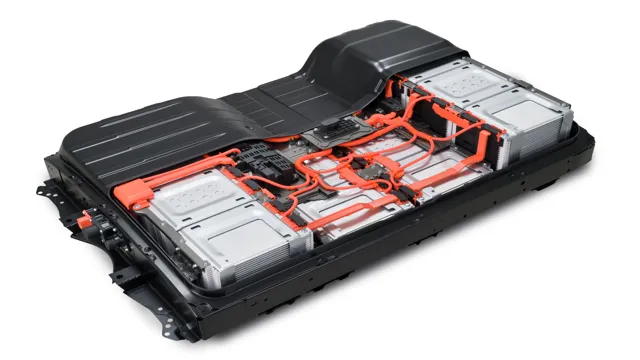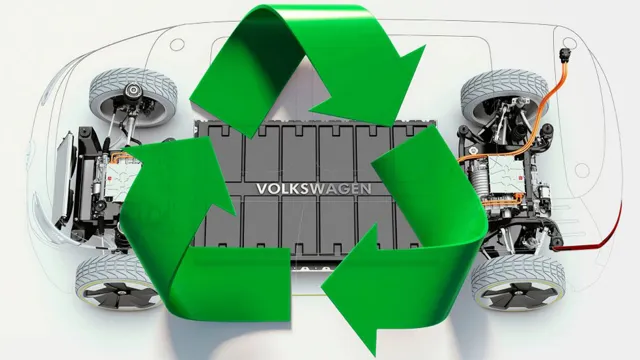The Shocking Truth about the Cost of Electric Car Batteries: What You Should Know
If you’re considering making the switch to an electric car, you’ve likely heard that one of the most significant costs is the battery. But have you ever wondered why electric car batteries are so expensive? Understanding the price breakdown of car electric batteries can help you make an informed decision when it comes to buying an electric car. Simply put, electric car batteries are expensive because they are complex and require a lot of materials.
The cost of materials alone can account for up to 80% of the total cost of the battery. Additionally, the manufacturing process is costly, and the research and development required to create these advanced batteries are also significant factors. To get a better understanding of the price breakdown, let’s compare it to baking a cake.
Just like a cake requires different ingredients, an electric car battery requires several key components, including the cathode, anode, electrolyte, and separator. Each component must be precisely formulated and layered in a specific sequence to create the battery. Just like your cake batter needs to be mixed correctly, each component must be analyzed and tested to ensure the battery will function correctly.
So, why is the battery such a crucial part of an electric car? It’s because all of the car’s power comes from the battery. Without a reliable battery, the car wouldn’t be able to operate efficiently or even at all. Additionally, electric car batteries need to have a higher capacity and be able to recharge quickly to make them comparable to traditional gasoline-powered cars.
Overall, the cost of electric car batteries is undoubtedly a significant factor in making the switch. But, as technology improves and the cost of materials decrease, the price of electric car batteries will likely continue to decrease. With that said, it’s important to consider the long-term benefits of owning an electric car, including environmental benefits and long-term cost savings.
Overview of Electric Car Batteries
When it comes to electric cars, the battery is one of the most crucial components, and it can be a significant portion of the car’s cost. The cost of an electric car battery varies depending on the type of battery and the car make and model. Lithium-ion batteries are the most common type of battery used in electric cars, and they make up the majority of the total battery cost.
However, advancements in battery technology and manufacturing have caused prices to decrease over the years. It’s important to note that the cost of an electric car battery is not just the upfront cost; it also includes the cost of maintaining and replacing the battery over the life of the car. Batteries have a limited lifetime, and they will eventually need to be replaced, which can be an expensive and time-consuming process.
Nonetheless, the benefits of owning an electric car – ranging from lower fuel and maintenance costs to reduced emissions and a better driving experience – make the cost of an electric car battery a worthwhile investment in the long run.
The Advantages of Electric Car Batteries over Traditional Fuel Sources
Electric car batteries are quickly gaining popularity in the world of transportation due to their numerous advantages over traditional fuel sources. Unlike gasoline or diesel, electric car batteries do not produce harmful emissions, making them a more environmentally friendly option. They are also more cost-effective in the long run, as the cost of charging an electric car is often significantly lower than the cost of filling up a traditional car with fuel.
Electric car batteries are also much quieter than traditional engines, providing a more peaceful driving experience. Additionally, electric cars have instant torque, providing a more responsive and zippy driving experience. Overall, electric car batteries provide a cleaner, more cost-effective, and enjoyable driving experience than traditional fuel sources.
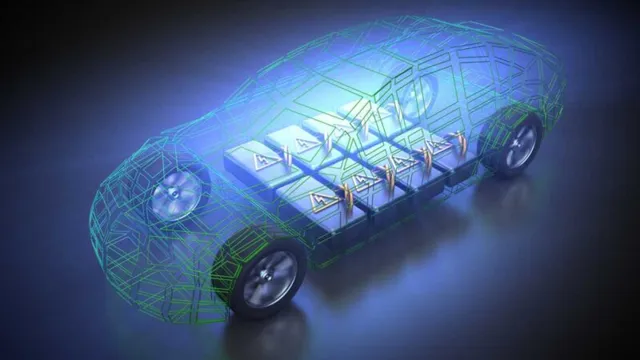
Types of Electric Car Batteries and Their Costs
Electric car batteries are an essential component of an electric vehicle, and their importance cannot be overemphasized. They are the primary source of energy that powers the electric motor, enabling the vehicle to move. There are different types of electric car batteries, and each has its unique features and benefits.
Lithium-ion batteries are the most common type of electric car battery as they offer a high energy density, longer life span, and can be charged more quickly than other batteries. They also have a lower self-discharge rate, which means they retain their energy even when not in use for extended periods. Other types of electric car batteries include nickel-metal hydride (NiMH), solid-state batteries, and lead-acid batteries, which are cheaper but less efficient and have a shorter lifespan.
The cost of electric car batteries varies widely and depends on the type of battery and the car model. While electric vehicles’ battery cost has been declining in recent years, they remain a significant component of electric vehicles’ overall cost.
Factors that Affect the Cost of Car Electric Batteries
The cost of car electric batteries can vary depending on several factors. One of the most significant factors that affect the price is the battery’s size or capacity. Usually, the larger the battery size, the more costly it can be.
Another factor that plays a crucial role in determining the cost of the battery is the type of the battery technology used. Lithium-ion batteries are widely used in electric cars and can be expensive compared to other battery technologies. Other factors that can influence the battery’s price include the manufacturing process, supply, and demand, research, and maintenance costs.
Additionally, the presence of government incentives and tax credits can reduce the cost of the battery for consumers. All in all, the cost of car electric batteries is crucial to the electric car industry as low battery prices will encourage more consumers to switch to electric vehicles.
Battery Size and Capacity
The cost of car electric batteries can be affected by various factors, the prime one being the battery size and capacity. The larger the battery size, the more energy it can store and the longer it can last. However, with larger size comes greater manufacturing costs.
The capacity of the battery also plays a significant role in influencing the cost. Higher capacity batteries can store more power and provide a longer driving range, but they are more expensive to produce. When it comes to electric car batteries, balancing size and capacity is crucial to keep costs down without sacrificing performance.
It’s like finding the right container for your food – too small and your meal won’t fit, too big and it will take up too much space in your fridge. Electric car manufacturers are constantly looking for ways to improve battery efficiency and reduce production costs, which ultimately benefits the consumer.
Brand and Model of Car
If you’re considering buying an electric car, one of the factors you’re likely thinking about is the cost of the battery. The brand and model of the car you choose can have a big impact on the final cost. For example, luxury electric cars like those from Tesla tend to have more expensive batteries compared to budget-friendly models from companies like Nissan.
Another factor that affects the cost of the battery is the size and capacity of the battery pack. Larger battery packs with more energy capacity can cost significantly more than smaller ones. Finally, the age and condition of the battery can also affect the cost, with older, worn batteries being less efficient and potentially requiring replacement sooner than newer models.
Overall, it’s important to do your research and factor in the cost of the battery when considering the overall expense of owning an electric car.
Location and Availability
When it comes to the cost of car electric batteries, there are several factors to consider. Location and availability have a significant impact on the cost of electric car batteries. If you live in an area where electric cars are popular, you may find that battery costs are lower due to increased competition among dealerships and manufacturers.
On the other hand, if you live in an area with limited access to electric car technology, battery costs may be higher due to the limited availability of batteries. The cost of electric car batteries also varies depending on the type of car and battery technology. Currently, lithium-ion batteries are the most popular and commonly used type of electric car battery.
However, advancements in technology could lead to new battery technologies and prices in the future. Ultimately, the cost of electric car batteries will depend on a variety of factors, including market demand, location, and technological advancements. It is essential to consider all of these factors when shopping for an electric car or replacing its battery.
Comparing the Cost of Car Electric Batteries to Traditional Fuel Sources
When it comes to the cost of car electric batteries versus traditional fuel sources, it’s important to consider both the upfront and long-term expenses. While electric vehicles may have a higher initial cost due to the price of their batteries, they can save you money in the long run. The cost of charging an electric car is significantly cheaper than filling up a gas tank, and electric cars require less maintenance than traditional cars.
In addition, many countries offer tax incentives and rebates for buying electric cars. However, it’s worth noting that the cost of replacement batteries can be high, but advancements in battery technology and competition in the market are driving down prices. Overall, the cost of car electric batteries may be higher upfront, but the long-term savings and incentives make them a smart investment for many drivers.
Lifetime Costs of an Electric Car Battery vs Gasoline or Diesel Power
When it comes to choosing between electric cars and traditional gasoline or diesel-powered cars, one of the biggest factors to consider is the lifetime cost of the car battery. While electric car batteries may have a higher upfront cost, they tend to be more cost-effective in the long run. This is because they require less maintenance and don’t rely on expensive gasoline or diesel fuel.
Additionally, advances in battery technology continue to drive down the cost of batteries, making them even more competitive with traditional fuel sources. So, while it may require some initial investment, switching to an electric car can ultimately save you money in the long run. Plus, you’ll be making a more environmentally-friendly choice that reduces your carbon footprint.
Environmental and Energy Efficiency Comparisons
When it comes to comparing the cost of car electric batteries to traditional fuel sources, there are several factors to consider. While the initial cost of purchasing an electric vehicle (EV) is higher than a gasoline-powered car, the savings in the long run can be substantial. The cost of electricity is typically lower than gasoline, and with more EVs on the road, the infrastructure to support them will become more widespread, making charging more accessible and affordable.
Additionally, electric cars require less maintenance than their gas-guzzling counterparts, resulting in lower maintenance costs over time. Another key factor to consider is the environmental impact. Gasoline-powered vehicles produce harmful emissions that contribute to air pollution and climate change.
Electric cars, on the other hand, produce zero emissions, making them a cleaner and more sustainable option. While the manufacturing process for car electric batteries does have an environmental impact, advancements in technology and production methods have reduced this impact significantly. In terms of energy efficiency, electric cars are much more efficient than traditional gasoline-powered cars.
Electric motors convert over 75% of the chemical energy from the battery to power the car, while gasoline engines only convert about 20% of the energy from gasoline to power the vehicle. This means that electric cars can travel farther on the same amount of energy as a gas-powered car, resulting in lower energy costs for the driver. Overall, while the initial cost of electric car batteries may be higher than traditional fuel sources, the long-term savings and environmental benefits make them a smart investment.
As the technology continues to improve and become more affordable, the switch to electric cars is becoming more accessible and feasible for drivers.
Conclusion: Investing in Clean Energy and Cost-Effective Transportation
In conclusion, the cost of a car electric battery may seem shocking at first, but when you consider all the benefits of electric vehicles – from reduced emissions to better fuel efficiency and lower maintenance costs – it’s clear that going electric is a sound investment for both your wallet and the planet. So why not give your gas-guzzling ride a break and go electric? Then just sit back, relax, and enjoy the shock-free and wallet-friendly ride!”
FAQs
How much does an electric car battery cost?
The cost of an electric car battery can vary depending on the size and manufacturer, but on average can range from $5,000 to $15,000.
Is it cheaper to replace an electric car battery or buy a new car?
It is generally cheaper to replace the battery in an electric car rather than buying a brand new car. The cost of a new battery can be high, but it is still less than the cost of a new car.
How long does an electric car battery last?
The lifespan of an electric car battery can vary depending on usage and environmental factors. On average, they can last anywhere from 8-10 years.
Can I upgrade my electric car battery?
It is possible to upgrade an electric car battery, but it can be expensive and is not always recommended. It is best to consult with a certified technician before attempting an upgrade.
